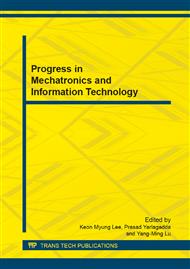p.775
p.782
p.788
p.794
p.798
p.803
p.809
p.815
p.820
Vehicle Power Grid Voltage's Influence on Anti-Disturbance Ability of Maglev Train
Abstract:
Maglev train operation process can be affected by a variety of disturbance force. The system stiffness should be improved in order to strengthen the train's anti-disturbance ability. The electromagnet input voltage will saturate when the system is disturbed by a large force. Since the electromagnet input voltage can only change in the range of the vehicle power grid voltage, the system performance is unable to be further improved by increasing the proportional feedback coefficient. Therefore an appropriate vehicle power grid voltage should be selected in consideration of the disturbance force the train may meet. In this paper, the mathematical model of magnetic suspension system was established according to the dynamics and electromagnetism theory. Then the working principle of the digital chopper and the linear generator was analyzed. Finally the relationship between the vehicle power grid voltage and the system anti-disturbance ability was explored. Gap changes of systems with different vehicle power grid voltage are compared in consideration of several common disturbing forces. The simulation results show that the higher the power grid voltage is, the stronger the system resistance ability to impact interference is. The existed 440 V vehicle power grid voltage can guarantee the stability of maglev train under 20 kN impact interference. But under more than 20 kN impact, train may crash the track. By selecting 500 V power grid voltage, the trains' gap change will be less than 5 mm, under 20 kN impact interference.The gap overshoot volume is reduced by 35.2% compared with that with 440 V power grid voltage.
Info:
Periodical:
Pages:
798-802
Citation:
Online since:
November 2013
Authors:
Keywords:
Price:
Сopyright:
© 2014 Trans Tech Publications Ltd. All Rights Reserved
Share:
Citation:


